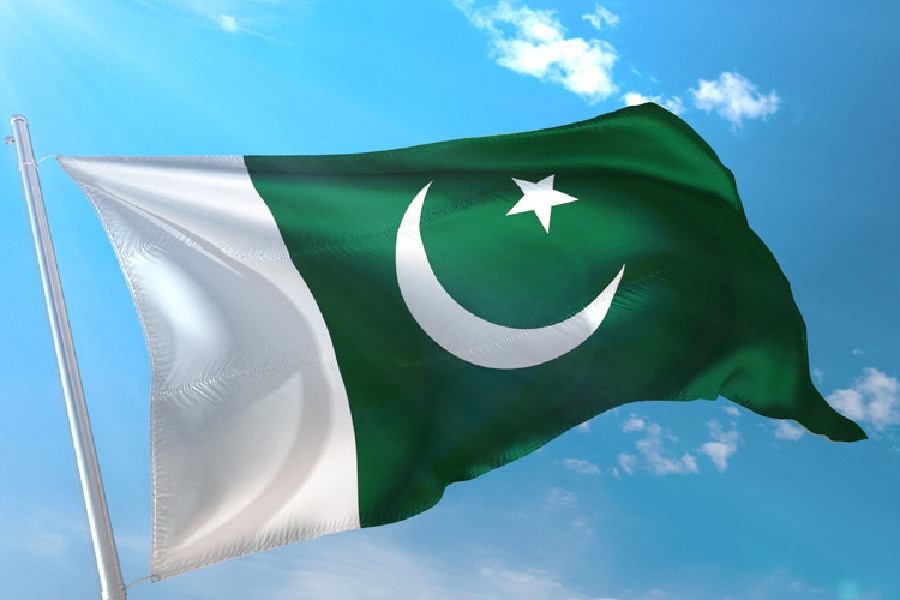The terrifying stories are sprawled across local newspapers and recounted in hushed tones at tea stalls and bus stands: another day, another brutal death during an armed robbery in Karachi, Pakistan’s largest city.
Last Wednesday, a car mechanic was shot dead by muggers trying to steal his phone. The day before, robbers in two separate incidents killed a secondhand shoe seller who refused to hand over his phone and a businessman who had just withdrawn cash from a bank. A few days earlier, robbers killed a 27-year-old mechanical engineer, stealing his phone, cash and motorcycle.
Across Karachi, Pakistan’s economic powerhouse, the rate of violent crime has soared. That has created a sense that no place is safe in this metropolis of 20 million people and led many to worry that the city is returning to its violent, chaotic past. The country’s President, Asif Ali Zardari, has called for a “large-scale operation” against the street criminals.
“The fear of mugging hangs over you every time you step outside,” said Shamim Ali, 43, a factory worker who said he was mugged twice in recent months. “Criminals operate with brazenness in broad daylight.”
The number of reported homicides, extortion attempts and motorcycle thefts has nearly doubled this year compared with the same period last year, according to the government-backed Citizen-Police Liaison Committee. At least 58 people were killed in muggings in the first five months of 2024, nearly double the number in that period in 2023, police records show. Rights activists say the true toll of violent crime is most likely higher, as many victims are hesitant to report cases.
A major driver of the jump in crime, experts and police officials said, is Pakistan’s economic crash, its worst in decades, with soaring debt, widening trade deficits and record inflation. Another contributor: record-breaking floods in 2022 and other natural disasters that have sent tens of thousands of farmers to the city looking for work. Few have found it.
The despair has breathed new life into the city’s criminal gangs, which have found recruits among the ballooning youth population, police officials said. Some of the muggings-turned-murders have also been linked to militant groups that have resurged elsewhere in the country in recent years, said Raja Umar Khattab, a senior official in the Karachi police’s counterterrorism department.
Ali, the factory worker who has been the victim of two recent muggings, said the latest had happened one day around 9am (local time) at his usual breakfast spot in a lower-income neighbourhood. As he was having a cup of tea, four armed robbers barged inside.
“Hand over your phones and wallets, now!” the thieves yelled, warning the patrons not to resist, according to Ali. Within minutes, the robbers had taken valuables from the two dozen people there.
The surge in violence has knocked the city back in time to around a decade ago, when armed wings of political parties, Taliban militants and criminal gangs controlled large swathes of the city, their turf battles frequently spilling out onto the streets. TV news broadcasts were filled with reports of murders each night. Family members checked in with one another every day to make sure they had returned from work alive.
A paramilitary-led operation starting in 2013 to flush out the militants restored order. Murders fell from around 3,100 in 2012 to 508 in 2020, according to police data.
Now, though, fear has returned. “The government seems to have abandoned Karachi’s residents to the mercy of robbers,” said Syed Akhtar Hussain, 70. His 38-year-old son, Syed Ali Rehbar, was fatally shot in January by robbers who accosted him while he was delivering food for a ride-hailing app.
One afternoon at a bustling tea stall along a main road in Karachi, dozens of taxi drivers, businessmen and students nursed their steaming cups and chatted beneath shade trees. Nearly everyone kept a wary eye on the street, suspicious that any motorcyclist passing by could be a robber in disguise.
“Before 2014, our worries were ethnic violence and stray bullets from gang wars,” said Muhammad Zaheer, a computer trader. “
New York Times News Service










